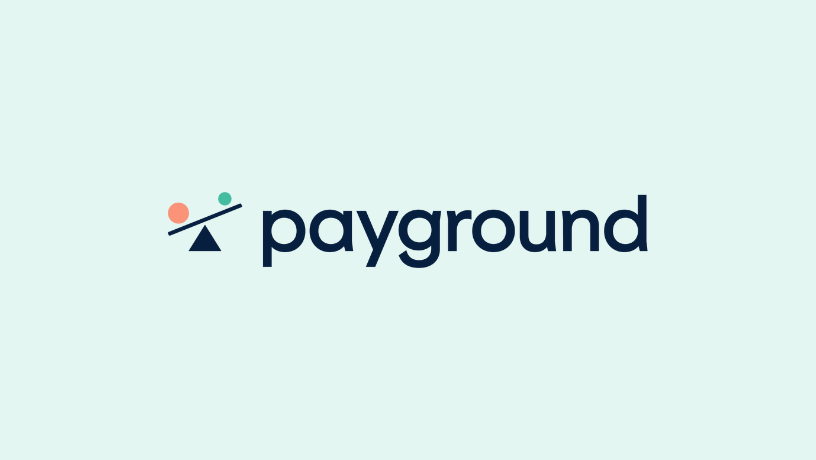Why We Invested: JustiFi
The embedded fintech platform for platforms.
As vertical SaaS platforms increasingly become the system of record in their industry, customers look to them for expanded capabilities, including payment and banking tools. Unfortunately most vertical SaaS platforms do not have the in-house expertise or engineering bandwidth to develop a fully embedded fintech suite of tools, and so they typically end up deploying an amalgamation of integrations that are not optimized for customer happiness or maximum revenue.
JustiFi solves this challenge by providing vertical SaaS platforms with a full suite of embedded fintech tools that can be deployed to their current customer base. These tools are optimized for lowest possible cost, resulting in highest possible revenue and profit.
As the global internet economy reached upwards of $6.49 trillion in 2020, businesses paid more than $195B in payment processing fees alone. Nearly every business in the world pays too much in payment processing fees, and those high fees are especially painful to vertical SaaS platforms, where gross margin is materially impacted by each basis point.
Using AI, JustiFi’s decision engine analyzes every transaction to dynamically optimize and reduce payment fees to the lowest possible effective rate at the interchange level. Over time, JustiFi becomes smarter by applying its learnings, thus continuing to increase the profitability of the business.
JustiFi commercializes all of the work, software and intelligence developed over 15 years by their team of vertical SaaS and payments veterans. We’re thrilled to co-lead their series seed with Emergence Capital and support their mission of radically changing how companies process payments online.
We recently caught up with co-founders Joe Keeley and Casey Kipfer. Below are edited excerpts from the conversation.
Justin Kaufenberg, Managing Director of Rally Ventures: Casey, you spent more than 15 years building the payments routing engine for SportsEngine, a vertical SaaS platform that processes billions of dollars in annual payments volume. You’ve seen financial services in the vertical SaaS space go from non-existent to a current reality where everything is fintech. What’s your view of this evolution?
Casey Kipfer, Co-Founder and Chief Payments Officer of JustiFi: The early challenge in the platform space was making payment capabilities and processing readily available to customers. 10 years ago, the only options people had for payment processing were their bank or a third-party vendor they had no relationship with. These options were often difficult to navigate and had disadvantageous terms.
The first challenge we identified at SportsEngine was that our customers, end-user youth sports organizations, didn’t understand how payments worked, and they weren’t able to easily access the financial products and services they needed.
Once SportsEngine entered the payments space and started making those products and services available to our customers, we started to see an evolution — both at SportsEngine and in the overall market. It wasn’t just about basic access to payment processing. It was about the additional features and services that could be leveraged to increase the revenue and overall financial success of our customers.
Justin: Joe, this is your second act. Over the past 20 years, you built one of the largest caretech companies in the world, had a successful exit and got to take a pause while you decided what to do next. You had experience with payments in your own business. What ultimately led you to found JustiFi and attack this industry?
Joe Keeley, Co-Founder and CEO of JustiFi: The cat is out of the bag that payments needs to be part of the economic engine, if not the economic engine for vertical SaaS platforms. But here’s the problem: it’s really difficult to be the best at multiple things. The challenge has become how can platforms be the best at software in their industry and be the best at payments?
Fintech is complex and payment teams are expensive and hard to secure, especially with other priorities like customer acquisition and new product features fighting for resources. It just makes sense to create a fully embedded fintech solution for platforms, so they can be the best in their vertical, but not have to compromise at winning the payments game.
For me, JustiFi was another opportunity to work with great people on a huge opportunity. Being able to create a product that frees up entrepreneurs and businesses to be more successful and focus on what they’ve been put on this earth to do is super exciting for me.
Justin: Casey, Joe talked about the rise of the vertical SaaS company and how critical it is for those companies to offer payments and have embedded fintech as a core competency. For the past 10 years you were one of those people. You were running the payments business at SportsEngine, and you had no choice but to build a proprietary payments system because a fintech solution for platforms didn’t exist at the time.
Now, you’re building JustiFi so that companies don’t have to create it all from scratch like you did. Why would someone use JustiFi instead of building a proprietary solution like you did at SportsEngine?
Casey: It took us 15 years to gain the knowledge we have now, and that journey was only impressive in that we never stopped working. I would not recommend that people go out and continually try to identify small enhancements over the course of 15 years. It was expensive and time-consuming. If you can start with all that payments knowledge and capability on day one — that sets you up for a type of growth and profit that you otherwise wouldn’t achieve.
Justifi’s payment team and platform tools enable platforms to integrate fintech strategies early in their build without having to hire huge teams to support them. JustiFi is not just a payments vendor. There are many financial issues people have to consider in the operation of their business or organization. We’ll be your strategic partner who will solve for other opportunities that exist in your system.
When a vertical SaaS platform partners with JustiFi, they instantly have a fully integrated and white labeled suite of payment acceptance tools, multi-payment type intelligent orchestration tools, white label insurance capabilities, lending capabilities, card issuing, treasury management and more. Plus, a concierge payments team of fintech experts who will help you every step of the way. We want to be the all-in-one solution that provides a competitive advantage.
Justin: That’s an important point. JustiFi is not just offering another way to accept payments, they’re offering a fully integrated, fully white label, comprehensive fintech stack.
Big organizations like Amazon Web Services (AWS) hit a tipping point and people stopped racking their own servers when AWS provided not just another hosting method, but a comprehensive infrastructure solution that allowed customers to truly hand off their infrastructure burden. In the same spirit as AWS, JustiFi provides a comprehensive embedded fintech solution that allows customers to truly hand off their payments burden.This is an important distinction when platforms think about why they would partner with JustiFi.
Joe: The reason why platforms would use JustiFi for payments is the exact same reason why all of their customers use their platform. You don’t have to build it all on your own anymore. Be the best at what you’re building and keep doing that. It’s not fair that someone has to be the best at payments in order to bring the best SaaS platform for their industry to bear.
Justin: Casey, in addition to building payments management tools and full stack embeddable fintech, you’re also spending a lot of time on the intelligence, reporting and predictive analytics engines. Could you talk more about why you’re spending so much time on those things?
Casey: To win at something, you have to know the rules of the game and understand them really well. Our goal is to always be on that bleeding edge of payments knowledge. We want to question, validate, understand and put into action what we’ve learned and what we continue to learn as the environment changes.
The investment we make there will pay out for all of our platform customers. The payment space is intentionally opaque, and if you’re running into walls trying to figure it all out, it’s understandable that you might throw up your hands and walk away. That’s not us. We want to understand the full ecosystem and leverage that to the benefit of our platform partners.
Justin: You recently closed your series seed, co-led by Rally Ventures and Emergence Capital. How was that process?
Joe: It was both energizing and humbling, and raising money should be both of those things. We were blessed to have several firms interested, which I think speaks to fintech in general and the caliber of our team.
We were attracted to Emergence and Rally because they think big and specialize in SaaS and fintech. On Emergence specifically: their statement that they “don’t take bets, they make commitments” really resonated with me. In my experience, it takes 5–10 years to build an enduring company. We have a sense of urgency, but building a company is a journey and we’re glad to have the right partners and the right team on the journey with us.
Justin: JustiFi will be a successful company if it can attract talented people and have a fantastic culture. That’s something we don’t talk about enough, but it’s the key to every company. At Rally, we did something very few venture firms have done by adding Jessi Howard as our Chief People Officer.
80% of expenses at a SaaS company are headcount, but somehow HR has historically been largely dismissed from the executive team. We put a lot of stock into quality leaders who stand for something. Joe, what type of leader are you?
Joe: Whether at home or at work, I aim to facilitate the extraordinary. We have an amazing founding team at JustiFi. Many of them came from Casey’s team at SportsEngine, and it’s made up of people who really understand the fintech and platform space. These are the leaders who will take us from 12 employees to 500 employees. My job is to help them articulate the magic that’s already there and perpetuate it into the future, so it’s never lost along the way.
Justin: Casey, same question to you. People are driven by and want to work for great leaders. How do you see yourself as a leader?
Casey: Trust, respect and gratitude are three core values of mine. If you don’t have all three, you’ll run into a whole host of issues — particularly in product design and development.
When I think about how teams interact and accomplish great things, it’s not by the work or ideas of any one person, or even any one group within the triad of product, development and design. If anyone is too far ahead or pushing in a direction that isn’t in line with the rest of the team, things will fall apart. It’s critical to ensure that all groups are on equal footing. There will be people who take leadership roles at different times, but it’s the collective work that ultimately creates great products.
Justin: As an investor, there are few opportunities of this magnitude. There are trillions of dollars transacted each year, and the overwhelming majority flow through legacy institutions and are under optimized. I believe JustiFi has an opportunity to make the flow of funds more fair in the software industry. It’s a big mission, a big vision, and we’re thrilled to be partnered with you both.



